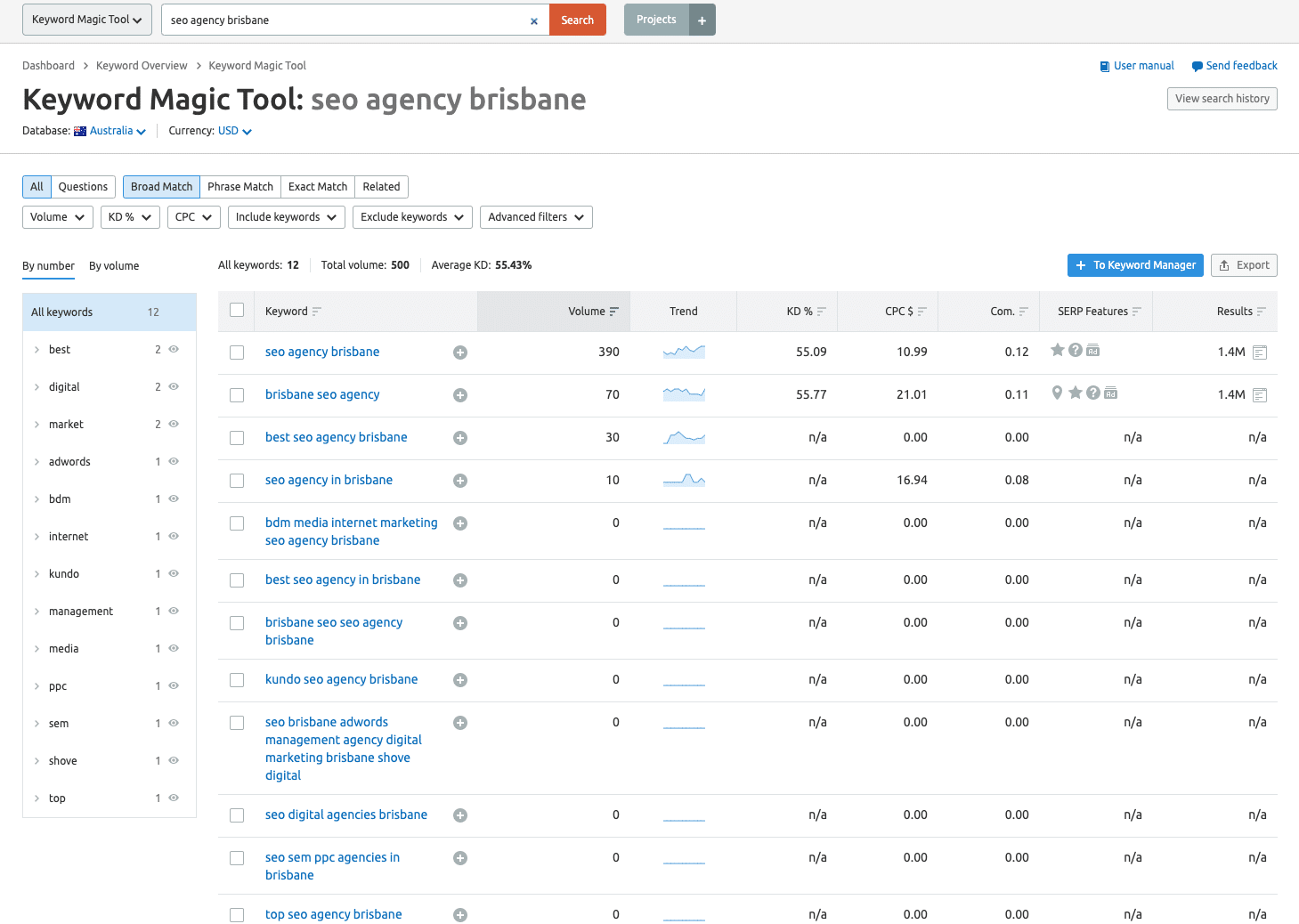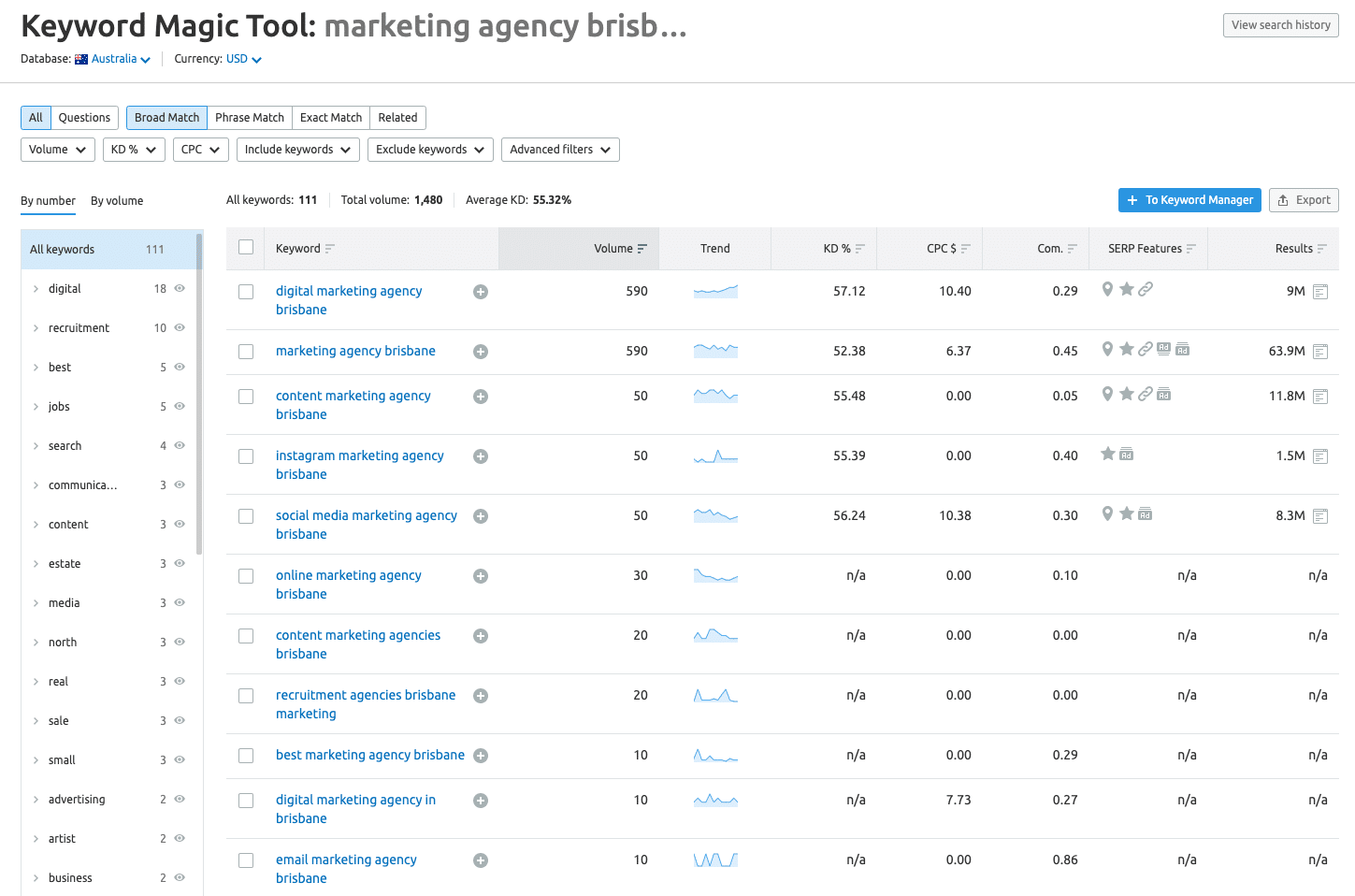
Simple SEO Audit Checks You Can Do Yourself
Kimberley Maunder
Oct 12 . 5 min
Let’s start off with a metaphor to keep things spicy in this article. Performing an SEO Audit of your website is like riding a horse, you can try to do it by yourself, but with a little bit of professional help, it can be done a lot better and safer.
For SEO, you need to keep this frame of mind: search engines are looking for the best possible result for what their users are searching for. If your website is the best option then they’ll favour you and push you higher in the SERPs.Luckily, many SEOs before us (thanks guys) have developed tools that make our jobs easier, as long as you know how to use them.
There are a number of free SEO audit tools available on the web that you can dip your toes into to get started or to push your knowledge that little extra bit. There’s no harm in testing the waters but it helps to know what you’re looking for.
Ubersuggest is one of our favourite free platforms. Created by the Iterate proclaimed GOAT of SEO, Neil Patel. For free, he will happily give you his top 10 keywords that your landing page is ranking for. He’ll give you additional keywords but sadly won’t give you other information like Volume, Position, difficulty to rank for, and Est Visits. There aren’t many things in life that are free, but we’ll take what we can get.
SEMRush is also another keyword tool you can jump into with some guidance. Similar to Ubersuggest, it will spit out relevant keywords for you but you’ll need to create an account. A free account, yes, but will you be able to remember yet another password? Probably. It’s worth it though.
Now for the fun part – the keyword research. Put yourself in the mind of Bilbo Baggins about to go on an adventure! You’ll need to start thinking like your potential customers. What would they be thinking? What would they be wanting to search to reach your page? Invision it. See it. Feel it.
Let’s use Iterate as an example for developing keywords. If you are trying to find our homepage you might use keywords like;
But if you are looking for our SEO page you would use words like;


Google loves a content filled website almost as much as we love results. And when we’re (SEOs) reading through the content of your website, we are tossing up whether it’s enough for Google or if it just needs that little extra bit more. If we think that more content is not going to add any value to the user, we will look at another way to optimise your site to make it the best it can be. We’re writing for humans and robots at the same time, so that perfect balance needs to be found so you don’t hear sentences like “how to perform a technical SEO audit with our simple website audit steps for the perfect technical SEO audit!”. Yeah we tried to squeeze in some extra keywords for this article there… What did you expect? We need to rank too, but it’s a great example of something that reads like it wasn’t written for humans.
Many optimisers think that adding content and more keywords is the best way to optimise a site but it’s not just that. At Iterate we have eagle eyes and know the best ways to optimise a site by taking a holistic approach. Whether it be factors like UX or external factors like backlinks there are many ways.

The visual appearance of your meta titles and descriptions are always crucial for your site. They might not directly impact your SEO but they will help improve your click through rate. Just like Jeff Bezos, make sure your meta is rich with keywords and USPs that will make you stand out. You might ask “What’s the point of adding keywords in your meta if it’s not a direct SEO factor?”. It’s because Google will happily bold the keywords and make you stand out. And you’re not the only one showing up in search results, so if your meta doesn’t sell your website, then you’ll see a low click through rate. Which is a negative SEO factor.
We’d recommend to look at your competitors, take a look at how attractive their meta is, then simply do better.
Now for the technical stuff
Think to yourself what would you rather in a drag race, a Lamborghini or a Toyota? Naturally you are going to pick the Lamborghini (We’d hope…). This is the same as your website, page speed is very important and there are tools that help you test yours for free. Lighthouse Tool by Google is a free tool to help you check the speed of your site within the ‘inspect element’ sidebar. You just inspect element and select ‘Lighthouse’ in the top bar of your inspect pop-out. Alternatively you can just search “Page Speed Insights” on Google and put your URL into the tool.
The Lighthouse tool will rate your website based on a number of factors and give your site a rating based on these tests. You want your score to be in the orange or green zone. If your score is not great, don’t stress, Google’s tools will show you what you can improve. Get your tech guru or developer involved and they will be able to help you out to make those improvements.
These can include things like:
Backlinks are not a technical factor (they’re an off-page factor) but we will use it anyways to increase your knowledge as they are easy to get if you know what you want.
Most sites have backlinks and you have mostly likely clicked on one without knowing that it was even important for SEO. A backlink is a link from another website that leads to your website. The great thing about backlinks for SEO is that they pass on what’s known as “Link Juice”. We don’t know who stitched us up with the term “Link Juice” but it causes us daily embarrassment for us in front of our clients. A nicer way to refer to it would be “authority”. As quality backlinks will help to build your domain authority.
Now if you go back to the GOAT’s website, we mean Neil Patel’s Ubersuggest site it will show you your number of backlinks (as well as a domain score which is based on the number of quality backlinks). Even though you don’t want to age over 35, you want your domain score to be at least above 35 and as close to 100 as possible.
You can have multiple backlinks from 1 referring domain. But a larger number of referring domains is better because the first backlink from that domain holds the most amount of the forbidden word, link juice.
A good SEO will explain the purpose of their work rather than just ‘optimising’ your site without being specific. They will take the time to educate you so that you understand why they are implementing particular strategies.
They should be letting you know what the next area of opportunity is and WHY this opportunity is important to you. You should be regularly hearing terms like ‘We found that this page is being ranked for this specific keyword which is getting a lot of impressions, but not many clicks, which means you’re ranking too low for it but it’s getting a lot of searches. So we’re going to optimise for that keyword and we expect that we can get this amount of traffic for ranking top 3′.
Reporting is important because SEO isn’t a tangible service. If you don’t understand your reports then you won’t be able to tell if your SEO is doing a good job or not. Ask your SEO to take the time to explain the report and offer up your opinions and metrics that you care about.
SEO isn’t a one-and-done service, it requires constant improvement. A quality digital marketing agency will have a different SEO Specialist audit the website to get a fresh take on what’s missing. Also it’s not always a bad thing to swap SEOs within the same agency. A fresh perspective is sometimes exactly what your website needs.
Make sure they’re sending through copy for approval, highlighting keyword usage and that those keywords match your goals. Also make sure they’re getting quality backlinks from you. Not thousands of backlinks from dodgy sources that will hurt your SEO.
Hope you enjoyed the read and happy SEO auditing!
Looking for more? Start by downloading our Guide to Writing Copy for SEO.